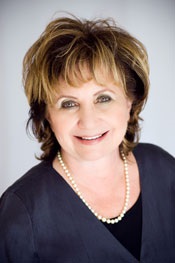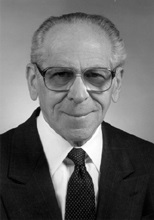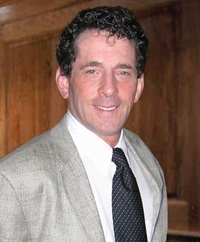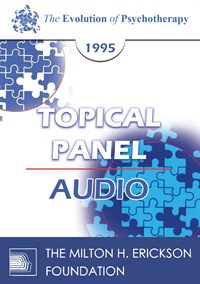EP95 Panel 16 - Key Ethical Considerations - Cloe Madanes, Lic. Psychol.; Margaret Singer, PhD; Thomas Szasz, MD; Jeffrey K. Zeig, PhD
- Average Rating:
- Not yet rated
- Topic Areas:
- Topical Panels | Psychotherapy | Therapist Development | Ethical Practice
- Categories:
- Evolution of Psychotherapy | Evolution of Psychotherapy 1995 | Pioneers in Couples and Family Therapy
- Faculty:
- Cloe Madanes, HDL, LIC | Margaret Singer, PhD | Thomas Szasz, MD | Jeffrey Zeig, PhD
- Course Levels:
- Master Degree or Higher in Health-Related Field
- Duration:
- 59:33
- Format:
- Audio Only
- Original Program Date:
- Dec 16, 1995
- License:
- Never Expires.
Description
Description: This panel on ethics in psychotherapy tackles core dilemmas such as self-determination vs. predetermination and action vs. talk. Speakers examine individual responsibility, the ethics of working with harmful behavior, and the tension between innovation and empirical validation. The conversation also covers informed consent, the risks of fad therapies, and maintaining standards amid pressures from managed care—underscoring the need for clear values and professional integrity in clinical practice.
Moderated by Bernhard Trenkle, Dipl. Psych.
Educational Objectives:
- To compare and contrast clinical and philosophical perspectives of experts.
*Sessions may be edited for content and to preserve confidentiality*
Credits
Handouts
| Timestamped Transcript (734.6 KB) | 16 Pages | Available after Purchase |
| Ericksonian Learning Snapshot (275.8 KB) | 3 Pages | Available after Purchase |
Faculty

Cloe Madanes, HDL, LIC Related Seminars and Products
Cloé Madanes, HDL, LIC, is a world-renowned innovator and teacher of family and strategic therapy and one of the originators of the strategic approach to family therapy. She has authored seven books that are classics in the field: Strategic Family Therapy; Behind the One-Way Mirror; Sex, Love and Violence; The Violence of Men; The Secret Meaning of Money; The Therapist as Humanist, Social Activist and Systemic Thinker; and Relationship Breakthrough. She has presented her work at professional conferences all over the world and has given keynote addresses for The Evolution of Psychotherapy Conference, the American Association of Marriage and Family Therapy; the National Association of Social Workers, The Erickson Foundation, the California Psychological Association and many other national and international conferences. Madanes has won several awards for distinguished contribution to psychology and has counseled outstanding individuals from all walks of life.

Margaret Singer, PhD Related Seminars and Products
Margaret Thaler Singer, Ph.D., received her degree in 1952 from the University of Denver. She has held a number of academic appointments, including serving as a Professor Emieritus in the Department of Pscyhology at the University of California, Berkeley. She has received numerous honors including the American Association for Marriage and Family Therapy Award for Cumulative Contributions to Reasearch in Family Therapy. Dr. Singer has served on a number of editorial boards and has been the recipient of numerous grants. She is past president of the American Psychosomatic Association. Dr. Singer has made more than 100 contributions to professional journals and bokos. She has authored Cults in our Midst and "Crazy" Therapies.

Thomas Szasz, MD Related Seminars and Products
Thomas S. Szasz, (M.D., University of Cincinnati, 1944) was Professor of Psychiatry at the State University of New York, Upstate Medical Center in Syracuse. He was recipient of numerous awards, including the Humanist fo the Year Award from the American Humanist Association and the Distinguished Service Award from teh American Institute for Public Service. He has received a number of honorary doctorates and lectureships, and served on the editorial board or as consulting editor for ten journals.
Szasz has authored approximately 400 articles, book chapters, reviews, letters to the editor and columns. He has written 19 books.

Jeffrey Zeig, PhD Related Seminars and Products
Jeffrey K. Zeig, PhD, is the Founder and Director of the Milton H. Erickson Foundation and is president of Zeig, Tucker & Theisen, Inc., publishers in the behavioral sciences. He has edited, co-edited, authored or coauthored more than 20 books on psychotherapy that appear in twelve foreign languages. Dr. Zeig is a psychologist and marriage and family therapist in private practice in Phoenix, Arizona.


